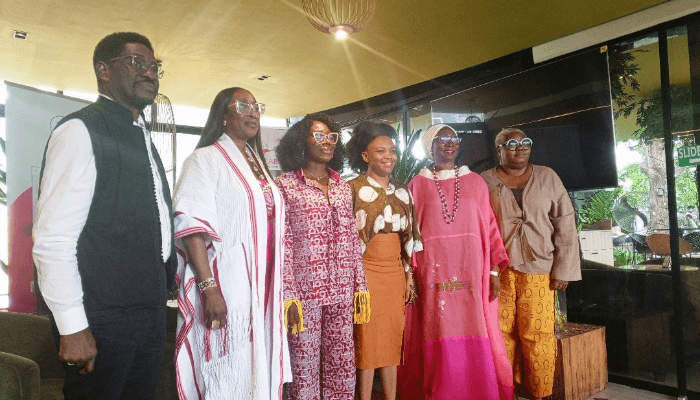WISCAR advocates inclusive governance for Nigeria’s sustainable development
…Holds 2025 leadership, mentoring conference November 29
Women in Successful Careers (WISCAR) has called for the promotion of inclusive governance practices as a key driver for Nigeria’s sustainable development.
Amina Oyagbola, founder and chairperson at WISCAR, made the call at the weekend, at a press briefing for the organisation’s 2025 annual leadership and mentoring conference billed for Saturday, November 29, in Lagos.
Oyagbola emphasised that Nigeria stands at a crossroads politically, socially, and economically, where inclusive governance has become essential for sustainable progress.
“Recent commitments at national and institutional levels have reaffirmed gender equity as a cornerstone of development, with renewed focus on implementing the national gender policy, strengthening women’s economic empowerment initiatives, and achieving at least 35 percent female representation in political and public leadership by 2027,” she said.
She, however, decried the fact that Nigeria’s current figures reveal the persistence of deep structural inequities.
“Only 16.7 percent of federal cabinet positions are held by women, while women occupy under 10 percent of elected offices nationwide.
“Sub-nationally, just two of Nigeria’s 36 states, Kwara and Kaduna, have achieved gender-balanced executive councils, and women hold only 3.7 percent of local government chairmanships, down from 10 percent before LGA autonomy reforms,” she noted.
However, she said there are signs of progress in the corporate sector, where women now occupy 31.1 percent of board seats across the Nigerian Exchange 30 Index (NGX30), marking a six-year high, with every top-30 company including at least one woman on its board.
Five of these companies, she said, are led by female chief executive officers, a first in Nigeria’s business history.
“These milestones demonstrate that where policy frameworks are coupled with accountability and leadership intent, tangible progress follows.
Against this backdrop, WISCAR’s 2025 Conference challenges leaders to move from policy to practice, bridging the gap between commitment and action.
“As the world celebrates the 30th anniversary of the Beijing Declaration and Platform for Action, WISCAR calls for transformative leadership that converts gender equity frameworks into measurable, enforceable systems across governance, law, business, and civil society,” she emphasised.
Furthermore, Oyagbola announced the theme of the conference; “Claiming Our Future, Women in Leadership and Policy Transformation”, reiterating that women’s leadership and inclusion is a governance issue, one that lies at the heart of sustainable development and national progress.
Nevertheless, she emphasised that advancing women’s representation is not a women’s agenda alone but a collective imperative that requires the commitment and participation of both men and women working together in a shared interest.
“At WISCAR, we believe that women are not just participants in nation building; they are architects of transformation.
“Claiming Our Future” is a call to action for every woman to take her rightful place in leadership, governance, and policymaking. When women lead, societies thrive and nations prosper,” she said.
Ekemini Akpakpan, the executive secretary of WISCAR, highlighted that a major highlight of the conference will be the graduation of the inaugural cohort of the Women in Law Mentoring Programme (WILMP), which is supported by the Gates Foundation.
“This milestone marks a significant step in WISCAR’s work to strengthen women’s leadership in law and governance.
“We are proud to be graduating 105 mentees from this pioneering programme, each equipped with the tools, confidence, and professional networks to lead reform within the legal profession and beyond,” she said.
Some of the dignitaries expected to grace the conference include Folasade Ogunsola, vice-chancellor of the University of Lagos, who is the keynote speaker; Jumoke Oduwole, minister of industry, trade and investment; Kemi Dasilva-Ibru, founder of WARIF; and Tayo Aduloju, CEO of the Nigerian Economic Summit Group; among others.

